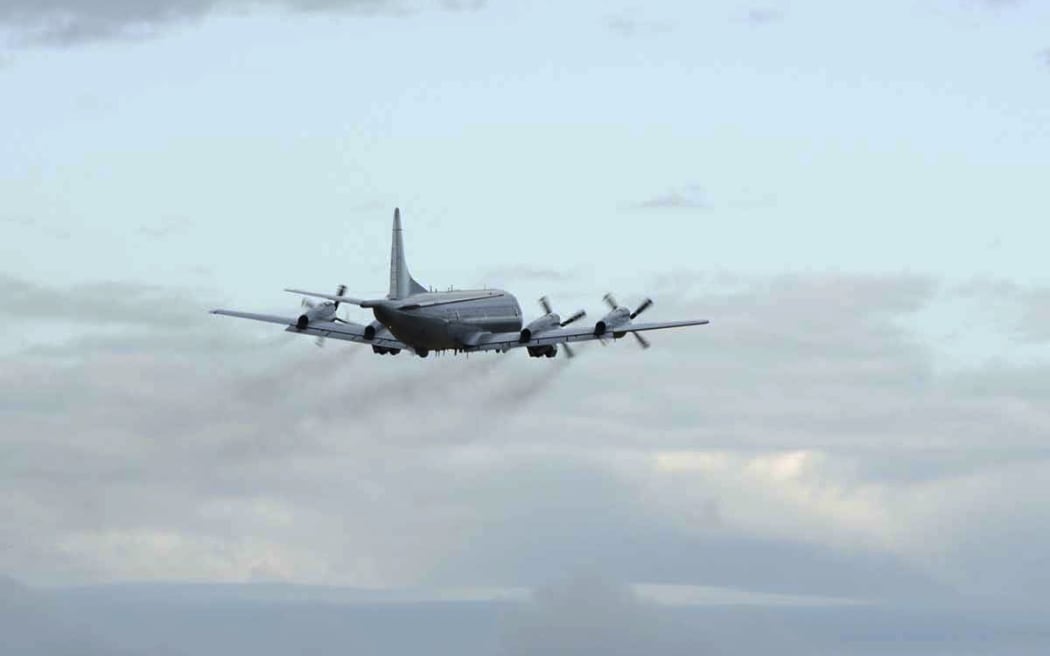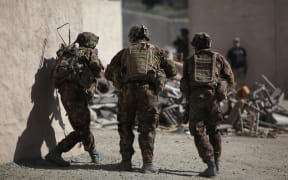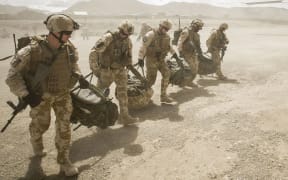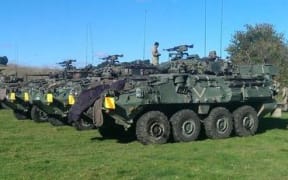The Defence Force admits it must lift its game when it comes to managing the changes required to better respond to future events.

An Orion takes off to take part in an anti-piracy operation in the Middle East. Photo: SUPPLIED / New Zealand Defence Force
A performance improvement framework review led by Paula Rebstock for the State Services Commission has just been released. Read the full review here (PDF 62 pages).
The review outlines the need for the Defence Force to be able to respond to future challenges, and found the Defence Force does not have a consistent track record of implementing change and this needs to improve.
Last year, the Defence Force was criticised for the way it handled a restructuring at its Devonport Dockyard.
In 2012, the Defence Force had to put a stop to its civilianisation process where it transferred military positions to civilian ones effectively discharging people from the organisation, after the job cuts damaged morale more than expected.
And in 2013 the Auditor-General published a critical report on the cost-cutting programme.
The review also found its leadership and workforce development was weak and its engagement with staff needed improving.
In 2011, the Defence Capability Plan charged the Defence Force with aligning the three services - Army, Airforce and Navy - so that they work as one force rather than three, by 2015.
By 2020 it is also expected to be able to operate new military capabilities and platforms that the government is investing in.
The review said the Defence Force has to drive these organisational improvements if it is to successfully transform itself, and the agency and its leaders need to be held to account for delivering the changes needed.
The Defence Force performs a number of duties for New Zealand including humanitarian support particularly in the Pacific, protecting the country's borders and its territorial waters, contributing to international deployments such as Iraq, as well as assisting with domestic issues like earthquakes.
The review said that on top of its day-to-day duties the Defence Force was also required to be ready to respond to unpredictable events.
However, the spiralling cost of military capability, the proliferation of chemical and biological technology, and the increasing risk of cyber attacks were identified as likely to have an impact on this.
Increasing external economic interest in Antarctica and New Zealand territorial waters as well as the rise of China, and heightened tension in the South China Seas were also seen as factors which could have an effect.
On top of these, the report noted the pressure on the Defence Forces resources, saying the government's decision to deploy military capability to Iraq for the next two years "brings the NZDF performance challenge into sharp relief."
"While it will need to demonstrate its competence in deploying to and sustaining this military mission, it must continue to flexibly respond to missions closer to home in the Antarctic, EEZ and the South Pacific, both on its own and with other partner agencies."
The review noted that given the Defence Force's commitments over the next five years, there was little or no room for activity that did not directly contribute to meeting its performance challenge to deliver a joint taskforce by this year, and enhanced combat capability by 2020.
It said the leadership of the organisation "must ensure the agency prioritises and sequences organisational change initiatives and ensures these are delivered on time and to budget."
The Defence Force said the review was a timely opportunity for it to test its thinking about what it needed to do to improve.






